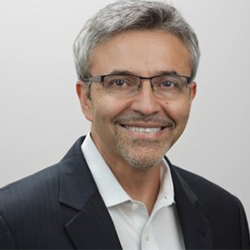Over the course of my life, I have overcome several life-altering challenges. My experiences have uniquely shaped me, and they have ultimately led me into a place within the clinical research community. It is imperative that future generations have access to a more sustainable and innovative clinical research ecosystem so that more lives can be saved, like mine. By acknowledging the current realities of clinical research, upcoming professionals will be able to identify roles for themselves as well as provide solutions.
Clinical Research Saved My Life, Now it is Time to Make it Better
Clinical Researcher—December 2020 (Volume 34, Issue 10)
SCIENCE & SOCIETY
Al O. Pacino

Fifteen years ago, my life was saved by the healthcare and clinical trial ecosystem. I was a head and neck cancer patient, and the drug solution (along with extensive radiation) ultimately sent my cancer into remission. However, not everybody in the world has the same opportunity I did. From then on, I felt it was imperative to develop a global system where everybody would have the same opportunity to access the benefits of a new healthcare and clinical research ecosystem. All these years later, I am still committed to the challenge of improving quality of life around the world through entrepreneurship, patient advocacy, and philanthropy.
My time in the industry, as well as being a cancer patient, has made me see up close where the system could change by educating the culture and incentivizing the establishment to modernize our industry. Clinical researchers and healthcare professionals have the opportunity to positively affect the patient experience in many ways. This is more achievable when institutions such as sites and sponsors are committed to maintaining patient privacy and to complying with global regulatory standards.
The goal is to improve human subject protection and patient safety by developing globally accepted standards of care. With more connective solutions on the rise, staff and management can implement new protocols for systems to expedite study start-up and closeout. By adapting to changing regulatory expectations of clinical research, sites have a higher chance of gaining studies and achieving long-term sustainability.
Lessons Going Forward: Privacy and Compliance
A helpful tip for future clinical research professionals is making sure that the records for all your required and independently gained professional trainings and other education, networking, and service experiences are up to date and secured at all times. Stay aware of any important regulatory updates or laws that may impact your research-ready status. For example, the General Data Privacy Regulation (GDPR) which was implemented May 25, 2018, protects professionals and empowers ownership over their own data and personal information. In the U.S., the California Consumer Protection Act (CCPA) implemented January 1, 2020, Nevada’s first data privacy legislation and multiple other states are expected to follow with implementation very soon.
By properly educating our culture and understanding what is being legally required of all stakeholders, everyone in the ecosystem will benefit, including patients, in the long run.
Finding Your Place and Making a Difference
Since clinical research is an international endeavor, several major institutional pillars support the industry to make sure it runs safely and efficiently. Sponsors, contract research organizations, research sites, hospitals, universities, and tech companies provide necessary functions to provide innovative outcomes. This means that there are several points-of-entry available for healthcare professionals to improve the greater ecosystem.
Instead of viewing the current system as “overwhelming” or “too bureaucratic,” aspiring clinical research professionals should see an opportunity to provide their advanced skill set to re-shaping the direction of future health outcomes and the protection of all patients. Streamlined communication between your organization’s departments should provide increased productivity and shared responsibility. When a more collaborative mindset and infrastructure are fully realized, we can begin to see more harmonious developments for all.
Conclusion
As specialized professional members in the clinical research process, we should help each other to modernize the healthcare and clinical research ecosystem together. Our world is rapidly evolving, and it is important to keep up. There should be a collaborative commitment to all patients equally, regardless of race, religion, socioeconomic status, political affiliation, or geographical area. We should be excited by the enthusiasm from global establishments and institutions which are now aligning their business models with an effort to benefit all lives though sustainable innovation. Individuals interested in the clinical research industry should ask themselves how they can help in the ecosystem to “leave no patient behind.”

Al O. Pacino is President at BlueCloud® by HealthCarePoint Professional Collaborative Networks, based in Cedar Park, Texas, and a former member of the Editorial Advisory Board for ACRP.